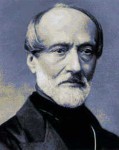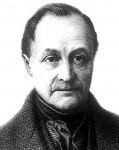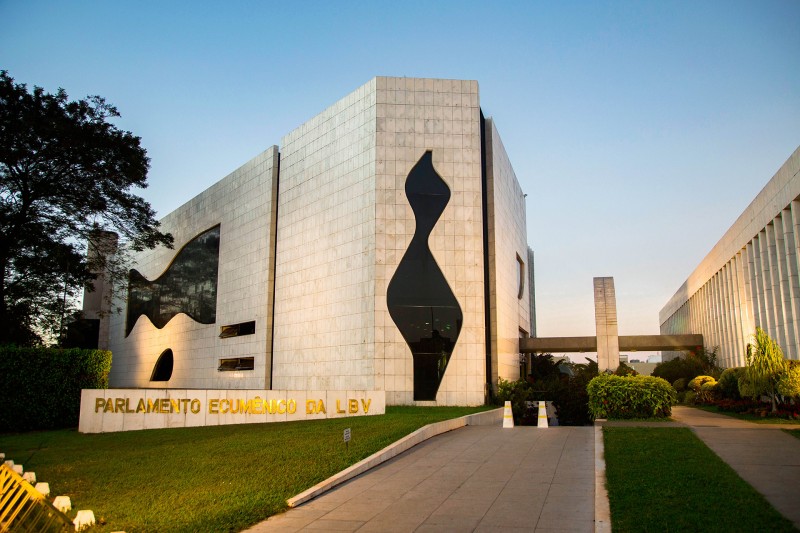The Christmas of Jesus and Human Rights
Christmas is not a time to forget our problems, but rather to seek Divine Inspiration to resolve them. Its atmosphere should be that of borderless Fraternity, which is now, more than ever, essential to the emergence of true Planetary Citizenship—one that effectively defends itself against global endemic exploitation. It is not just the body that falls sick, but society as well.

On December 10, the Universal Declaration of Human Rights celebrates its 64th anniversary. In support of such a significant milestone I present extracts from talks I gave, some of which can be found in the “Dialectic of Good Will” (1987) and “The Manifest of Good Will”, of October 21, 1991, when I laid the cornerstone of the Legion of Good Will’s ParlaMundi in Brasília, in the presence of around 100,000 people.
We have come a long way since the Magna Carta was enacted, but there is still a lot to be done in the 21st century to prevent women, girls and boys from still being sold as merchandise; children from still working in charcoal making kilns or in other activities whose conditions are subhuman; or from becoming blind because of a lack of vitamin A; and all this without talking about the institutionalized torture that is spreading all over the planet. However, what greater torment is there than hunger and the multitudes of illiterate and semiliterate people whose prospect of a decent existence is kept at a distance?
Law of universal solidarity

Totally unlike human folly, in our experience of the New Commandment of Jesus we see the common denominator that is capable of uniting and illuminating hearts in a brotherly way. This is the religion of friendship and of good companionship, as emphasized by John the Evangelist in the Apocalypse (1:9). This is the law of universal and, therefore, spiritual, moral, and social solidarity. Giuseppe Mazzini (1805-1872), the Italian patriot and revolutionary, said: “Life was given to us by God in order that we might employ that life for the benefit of Humanity.” August Comte (1798-1857), the philosopher of Positivism, concluded: “Living for others is not only the law of duty, but also of happiness.”

Love is essential, beginning with those who govern us. Those who suffer violence definitely say so.
The duties of human beings and citizens
In the Sermon on the Mount of Jesus, the Ecumenical Christ, the Divine Statesman, (Gospel according to Matthew 5:1 to 12), we see an exaltation to the blessed, to those who understood over the ages, that in fulfilling their duties as human beings and citizens, their rights are fully guaranteed, in a sphere that not all can as yet conceive of.
Human Rights in the ParlaMundi
On October 24, 2008, on the occasion of the celebrations of the 19th anniversary of the Temple of Good Will (TGW), in Brasília, Brazil, Dr. Monica Sharma, Director of Leadership and Capacity Development at the United Nations Headquarters, took part in the ceremony paying tribute to the 60-year anniversary of the Universal Declaration of Human Rights. This formed part of the Week of Spirituality, Values and Global Concerns held in the headquarters of the UN, an organization where the LGW has general consultative status at the Economic and Social Council (ECOSOC). She was greeted at the time by the Ecumenical Children Choir and then visited the various rooms of the Temple of Peace and the ParlaMundi, which she considered to be “a space of courage and compassion together, manifesting change.”

In a videoconference with members of the international community in the Labouisse Hall in the UNICEF building in the UN Headquarters in New York/USA, Dr. Monica gave a talk on “How Spirituality and Consciousness realize Human Rights.”
When she visited the LGW’s Educational Institute in São Paulo, Dr. Monica, to whom I had the pleasure of talking on the telephone, wrote in the visitors’ book:
“This education is so complete – a holistic approach:
– From the young members of our global family to the youth;
– From the school to the home and family;
– From learning math and science;
– From creativity in music and balance that we bring forth with karate!
How can we turn this into a world movement? Respecting the deep values of different religions and learning ‘to love in action.’”
That is why we strive for Education and Culture allied with the illuminating action of Ecumenical Spirituality, so that there is a sublime synthesis between the brilliance of the intellect and the Sun of Spiritual Knowledge.
The comments do not represent the views of this site and are the sole responsibility of their authors. It denied the inclusion of inappropriate materials that violate the moral, good customs, and/or the rights of others. Learn more at Frequently asked questions.